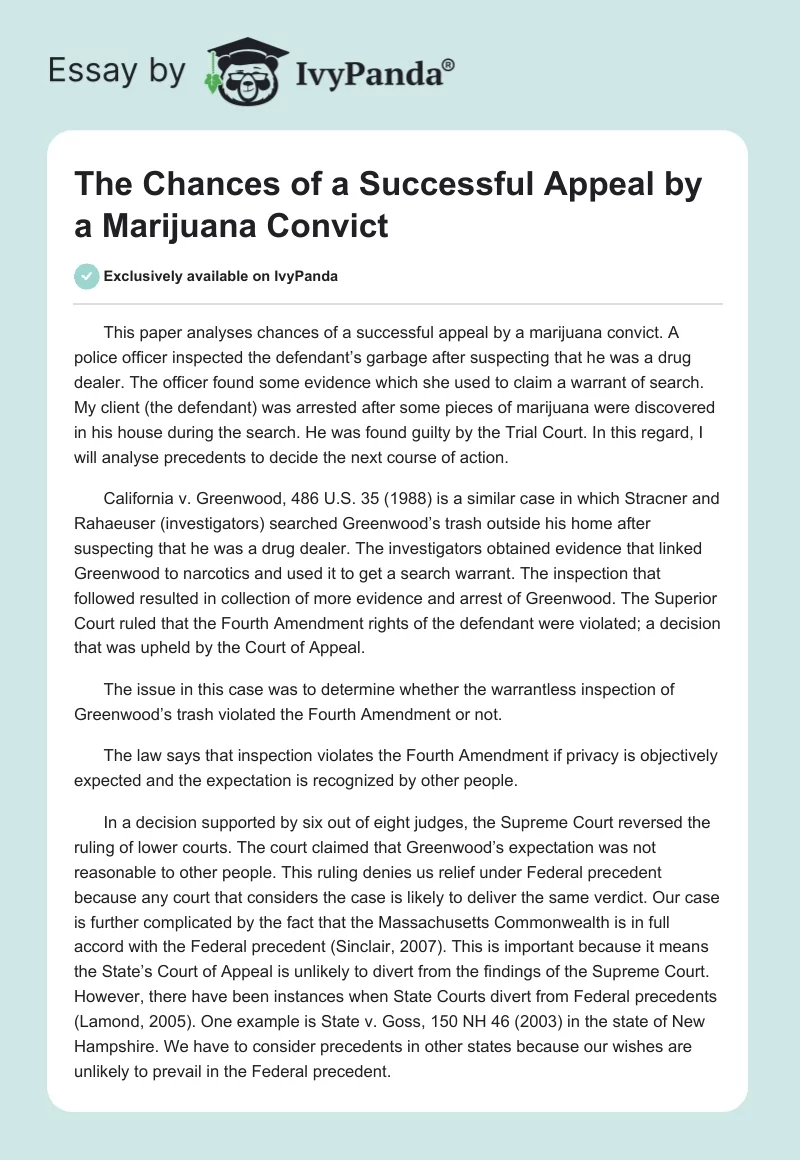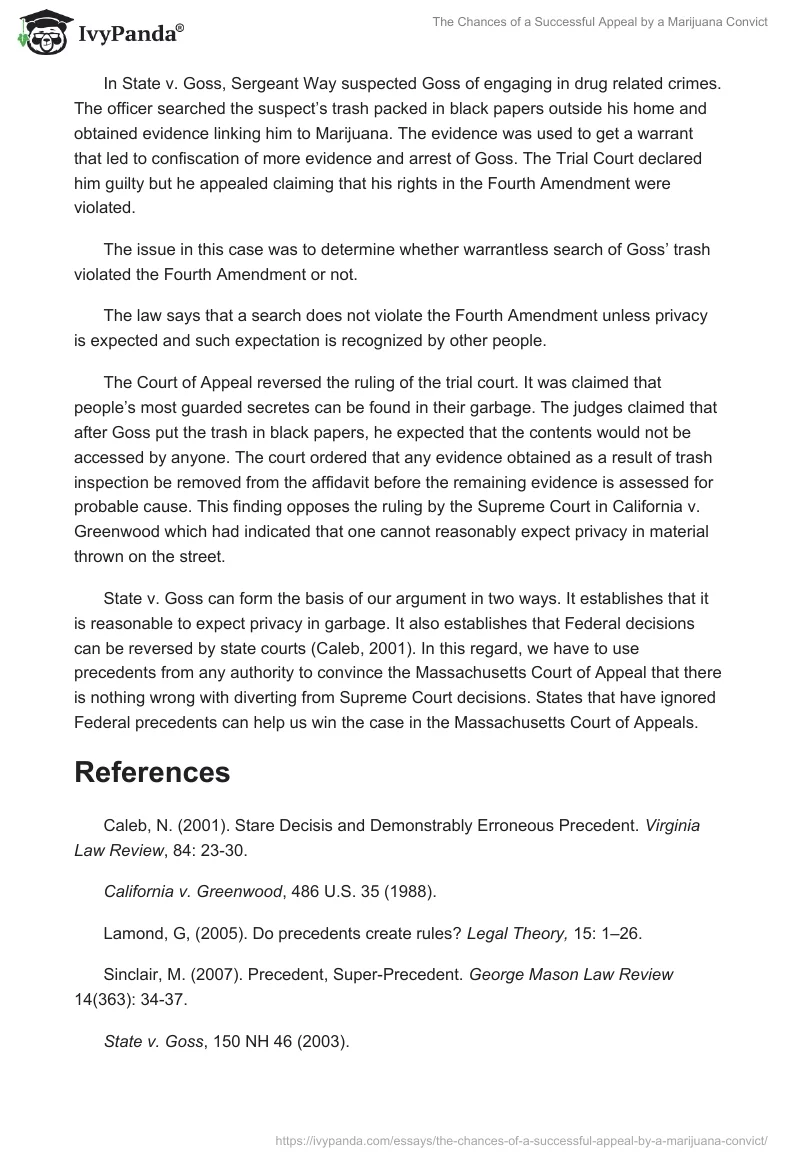This paper analyses chances of a successful appeal by a marijuana convict. A police officer inspected the defendant’s garbage after suspecting that he was a drug dealer. The officer found some evidence which she used to claim a warrant of search. My client (the defendant) was arrested after some pieces of marijuana were discovered in his house during the search. He was found guilty by the Trial Court. In this regard, I will analyse precedents to decide the next course of action.
California v. Greenwood, 486 U.S. 35 (1988) is a similar case in which Stracner and Rahaeuser (investigators) searched Greenwood’s trash outside his home after suspecting that he was a drug dealer. The investigators obtained evidence that linked Greenwood to narcotics and used it to get a search warrant. The inspection that followed resulted in collection of more evidence and arrest of Greenwood. The Superior Court ruled that the Fourth Amendment rights of the defendant were violated; a decision that was upheld by the Court of Appeal.
The issue in this case was to determine whether the warrantless inspection of Greenwood’s trash violated the Fourth Amendment or not.
The law says that inspection violates the Fourth Amendment if privacy is objectively expected and the expectation is recognized by other people.
In a decision supported by six out of eight judges, the Supreme Court reversed the ruling of lower courts. The court claimed that Greenwood’s expectation was not reasonable to other people. This ruling denies us relief under Federal precedent because any court that considers the case is likely to deliver the same verdict. Our case is further complicated by the fact that the Massachusetts Commonwealth is in full accord with the Federal precedent (Sinclair, 2007). This is important because it means the State’s Court of Appeal is unlikely to divert from the findings of the Supreme Court. However, there have been instances when State Courts divert from Federal precedents (Lamond, 2005). One example is State v. Goss, 150 NH 46 (2003) in the state of New Hampshire. We have to consider precedents in other states because our wishes are unlikely to prevail in the Federal precedent.
In State v. Goss, Sergeant Way suspected Goss of engaging in drug related crimes. The officer searched the suspect’s trash packed in black papers outside his home and obtained evidence linking him to Marijuana. The evidence was used to get a warrant that led to confiscation of more evidence and arrest of Goss. The Trial Court declared him guilty but he appealed claiming that his rights in the Fourth Amendment were violated.
The issue in this case was to determine whether warrantless search of Goss’ trash violated the Fourth Amendment or not.
The law says that a search does not violate the Fourth Amendment unless privacy is expected and such expectation is recognized by other people.
The Court of Appeal reversed the ruling of the trial court. It was claimed that people’s most guarded secretes can be found in their garbage. The judges claimed that after Goss put the trash in black papers, he expected that the contents would not be accessed by anyone. The court ordered that any evidence obtained as a result of trash inspection be removed from the affidavit before the remaining evidence is assessed for probable cause. This finding opposes the ruling by the Supreme Court in California v. Greenwood which had indicated that one cannot reasonably expect privacy in material thrown on the street.
State v. Goss can form the basis of our argument in two ways. It establishes that it is reasonable to expect privacy in garbage. It also establishes that Federal decisions can be reversed by state courts (Caleb, 2001). In this regard, we have to use precedents from any authority to convince the Massachusetts Court of Appeal that there is nothing wrong with diverting from Supreme Court decisions. States that have ignored Federal precedents can help us win the case in the Massachusetts Court of Appeals.
References
Caleb, N. (2001). Stare Decisis and Demonstrably Erroneous Precedent. Virginia Law Review, 84: 23-30.
California v. Greenwood, 486 U.S. 35 (1988).
Lamond, G, (2005). Do precedents create rules? Legal Theory, 15: 1–26.
Sinclair, M. (2007). Precedent, Super-Precedent. George Mason Law Review 14(363): 34-37.
State v. Goss, 150 NH 46 (2003).


